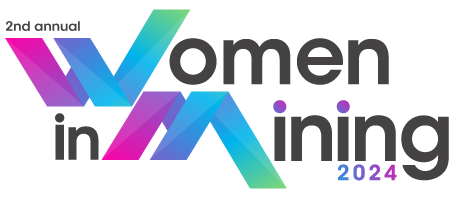"In mining, what gets measured gets changed. There are real time dashboards recording metres drilled, ounces processed, and dirt hauled. We can check when an asset needs servicing from 5,000 km away, and every senior leader can take a multi-billion dollar set of figures and regurgitate the exact cost per ounce of production as fast as they can assess the weather forecast," says Peta Slocombe, the Chief Executive Officer at Performance Story, a psychologist, and a former Executive of People + Culture at an ASX 60 Resources Company.
However, Peta continues, “The wellbeing of people has not been given the same attention nor an algorithm, and yet mental health can be measured and changed, and the impacts of doing so would be transformative.”
This article explores the consequences of mental health issues in mining, strategies for early identification and intervention, practical steps to improve mental health in the workplace, and the impact of impostor syndrome on women's mental health and productivity.
Consequences of Mental Health Issues in the Mining Industry
Mental health issues within the mining industry can have severe consequences for individuals and the overall wellbeing of the workforce. Long working hours, physical strain, isolation, and a high-pressure environment contribute to the development of conditions such as anxiety, depression, and stress-related disorders. These issues can lead to reduced productivity, increased absenteeism, accidents, and strained interpersonal relationships. Neglecting mental health not only affects individuals' wellbeing but also hampers the industry's efficiency and safety.
Strategies to Identify and Address Mental Health Issues Early On
Early identification and intervention are crucial in mitigating the impact of mental health issues in the workplace. Implementing proactive strategies within mining organisations can create a supportive environment that promotes mental wellbeing. Effective strategies that leaders should look to implement in the workplace include:
- Education and Awareness: Offering training programs to educate employees and management about mental health issues, their symptoms, and available resources.
- Regular Mental Health Assessments: Conducting confidential mental health screenings to identify early signs of distress and provide appropriate support.
- Employee Assistance Programs (EAPs): Establishing confidential counselling services to support employees facing mental health challenges and providing access to professional help.
- Peer Support Networks: Encouraging the development of peer support networks to foster a culture of open dialogue and mutual assistance among colleagues.
Practical Steps to Improve Mental Health in Mining
Improving mental health in the mining workplace requires a collective effort from a range of individuals, regardless of their position within the organisation. Practical steps to address the risks associated with mental health and wellbeing issues in mining include:
- Foster a Supportive Culture: Create an inclusive work environment where open discussions about mental health are encouraged and stigmatisation is actively addressed.
- Encourage Self-Care: Advocate for self-care practices such as physical exercise, mindfulness, and stress-management techniques, and provide resources to support these activities.
- Promote Work-Life Balance: Encourage employees to maintain a healthy work-life balance by promoting flexible working arrangements, regular breaks, and opportunities for relaxation.
- Develop Strong Social Connections: Promote team-building activities, mentorship programs, and social events to strengthen relationships and create a sense of belonging.
Impostor Syndrome and Women's Mental Health
Impostor syndrome can significantly impact women's mental health, performance, and productivity in the mining industry. As explained by Peta, “‘Imposter Syndrome’, originally identified in 1978, was specifically referred to as ‘a syndrome for high achieving women’ who felt that in spite of their success, others would soon find out they were a fraud.”
Peta suggests that “It is no longer a fit for purpose term and needs to be reframed in the spirit of contemporary research. The fact is, anxiety, humility, a constant desire to learn more and keep adapting, and a refusal to succumb to overconfidence as if it somehow had a relationship to confidence (it does not), is why the world needs more female leaders.”
To overcome what’s commonly been referred to as impostor syndrome, some strategies women can employ include:
- Recognise and Challenge Negative Self-Talk: Acknowledge self-doubt and challenge negative thoughts by focusing on achievements, skills, and positive feedback.
- Seek Support and Mentorship: Surround yourself with a supportive network of colleagues, mentors, and role models who can provide guidance, reassurance, and encouragement.
- Celebrate Successes and Embrace Growth: Embrace accomplishments and recognise that mistakes are an essential part of growth and learning. Embrace challenges as opportunities for personal and professional development.
Embracing a Comprehensive Approach to Mental Health
The mining industry must prioritise mental health and wellbeing to foster a healthier and more productive workforce. By identifying and addressing mental health issues early on, promoting supportive workplace cultures, and empowering women to overcome impostor syndrome, the industry can pave the way for positive change. It's time for mining companies to embrace a comprehensive approach to mental health, where the wellbeing of their employees is as valued as their operational achievements.
Join us at the Women in Mining Summit to hear from Peta Slocombe and a host of other inspirational mining leaders from 8-10 August 2023. Learn more.
To access the detailed conference program, download the brochure here.

